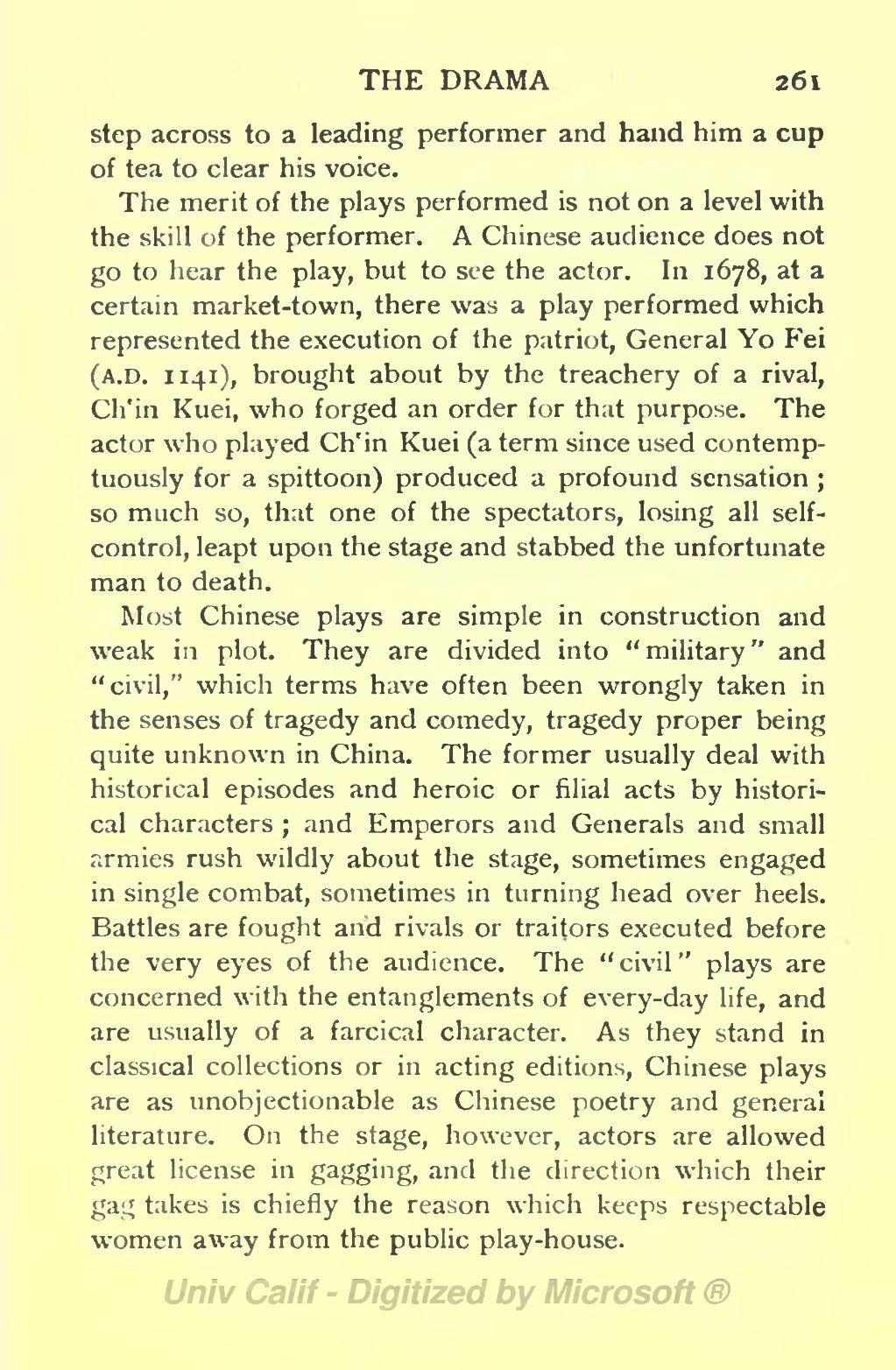step across to a leading performer and hand him a cup of tea to clear his voice.
The merit of the plays performed is not on a level with the skill of the performer. A Chinese audience does not go to hear the play, but to see the actor. In 1678, at a certain market-town, there was a play performed which represented the execution of the patriot, General Yo Fei (A.D. 1141), brought about by the treachery of a rival, Ch'in Kuei, who forged an order for that purpose. The actor who played Ch'in Kuei (a term since used contemp- tuously for a spittoon) produced a profound sensation ; so much so, that one of the spectators, losing all self- control, leapt upon the stage and stabbed the unfortunate man to death.
Most Chinese plays are simple in construction and weak in plot. They are divided into " military " and "civil," which terms have often been wrongly taken in the senses of tragedy and comedy, tragedy proper being quite unknown in China. The former usually deal with historical episodes and heroic or filial acts by histori- cal characters ; and Emperors and Generals and small armies rush wildly about the stage, sometimes engaged in single combat, sometimes in turning head over heels. Battles are fought and rivals or traitors executed before the very eyes of the audience. The "civil" plays are concerned with the entanglements of every-day life, and are usually of a farcical character. As they stand in classical collections or in acting editions, Chinese plays are as unobjectionable as Chinese poetry and general literature. On the stage, however, actors are allowed great license in gagging, and the direction which their gag takes is chiefly the reason which keeps respectable women away from the public play-house.
�� �
